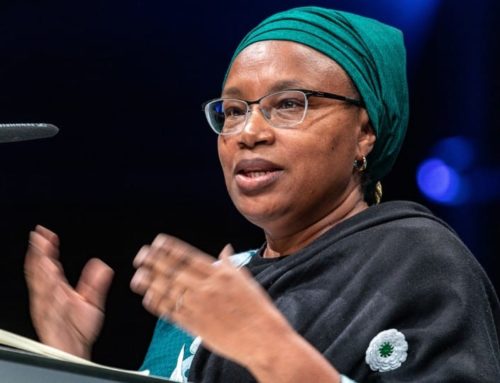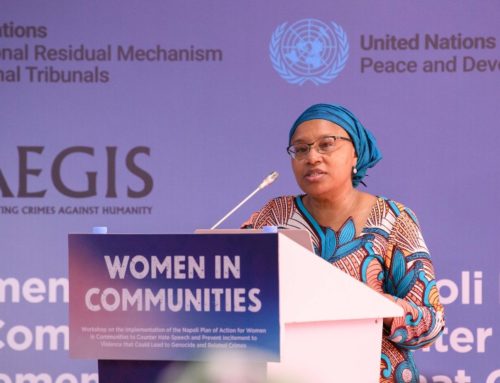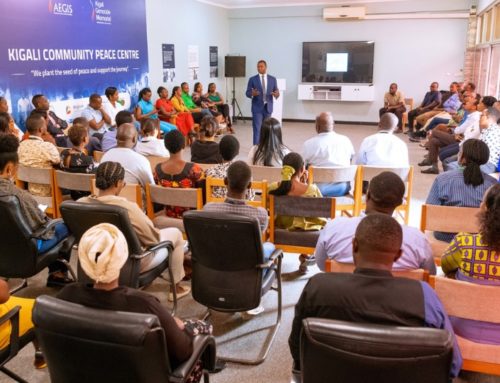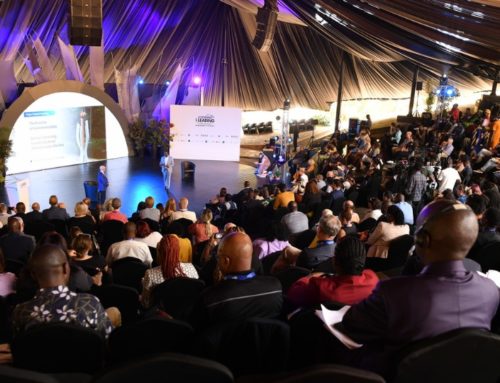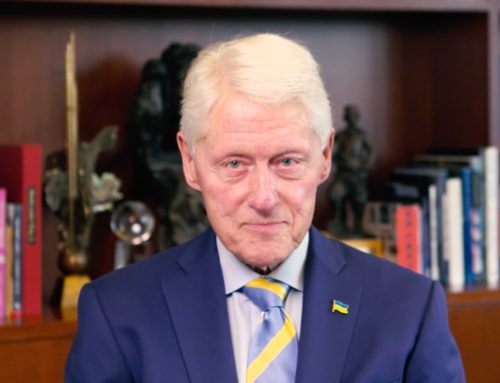Dr Simon Fisher, a respected conflict transformation specialist and academic widely regarded as the father of conflict analysis, recently discussed plans for the future of the Aegis Trust’s Isōko Centre for Humanity with Alice Wairimu Nderitu, Global President of Isōko, Aegis Trust CEO Freddy Mutanguha, and Aegis Founder Dr James Smith.
Coming together in Oxford, they explored how Isōko – set to be located in Bugesera, Rwanda – can reimagine peacebuilding for today’s global challenges. Some highlights from the conversation are captured in the video above.
A Clean Slate for Innovation
Alice Nderitu described the Centre’s potential: “This Isōko Centre for Humanity really is a clean slate to write on. We are building a campus in Rwanda in a very beautiful place with a lake and mountains… We want to put in place a space where peace builders can think of new ideas, new ways of dealing with what’s going on in the world, and find solutions.”
“It is so exciting,” Simon Fisher commented. “A new kid on the block. Whatever it says is less important than the fact that it is there. And then over time, what it does.”
Discussing the importance of collaboration for Isōko, Aegis Trust Founder Dr James Smith emphasized the invitation-based approach that has guided Aegis’ work to date: “Freddy and the team have worked in around 16 countries in Africa, but always at the invitation of somebody that may have come to Rwanda, seen the memorial, recognized the patterns, and don’t want their communities to go down that road.”
Learning from Rwanda’s Journey
Freddy Mutanguha explained how survivors guide the learning process in Rwanda – a key part of the rationale for locating the Isōko Centre for Humanity there: “We want people to come and be guided by survivors and perpetrators who went through this process of making peace together and living together side by side again.”
He gave an example of the power of the survivor-led approach from his own experience speaking in the Central African Republic: “A lady in a mosque stood up and said, if you can forgive people who killed your family, I’m happy to forgive the person who killed my child.”
Invited to become an advisor to the Isōko Centre for Humanity, Simon said he would certainly consider it.
Capturing the excitement and potential surrounding its development, the conversation highlighted that Isōko represents more than just a new institution – it embodies hope that the lessons learned from Rwanda’s journey from genocide to reconciliation can light the way for communities worldwide seeking to prevent conflict and build sustainable peace.

